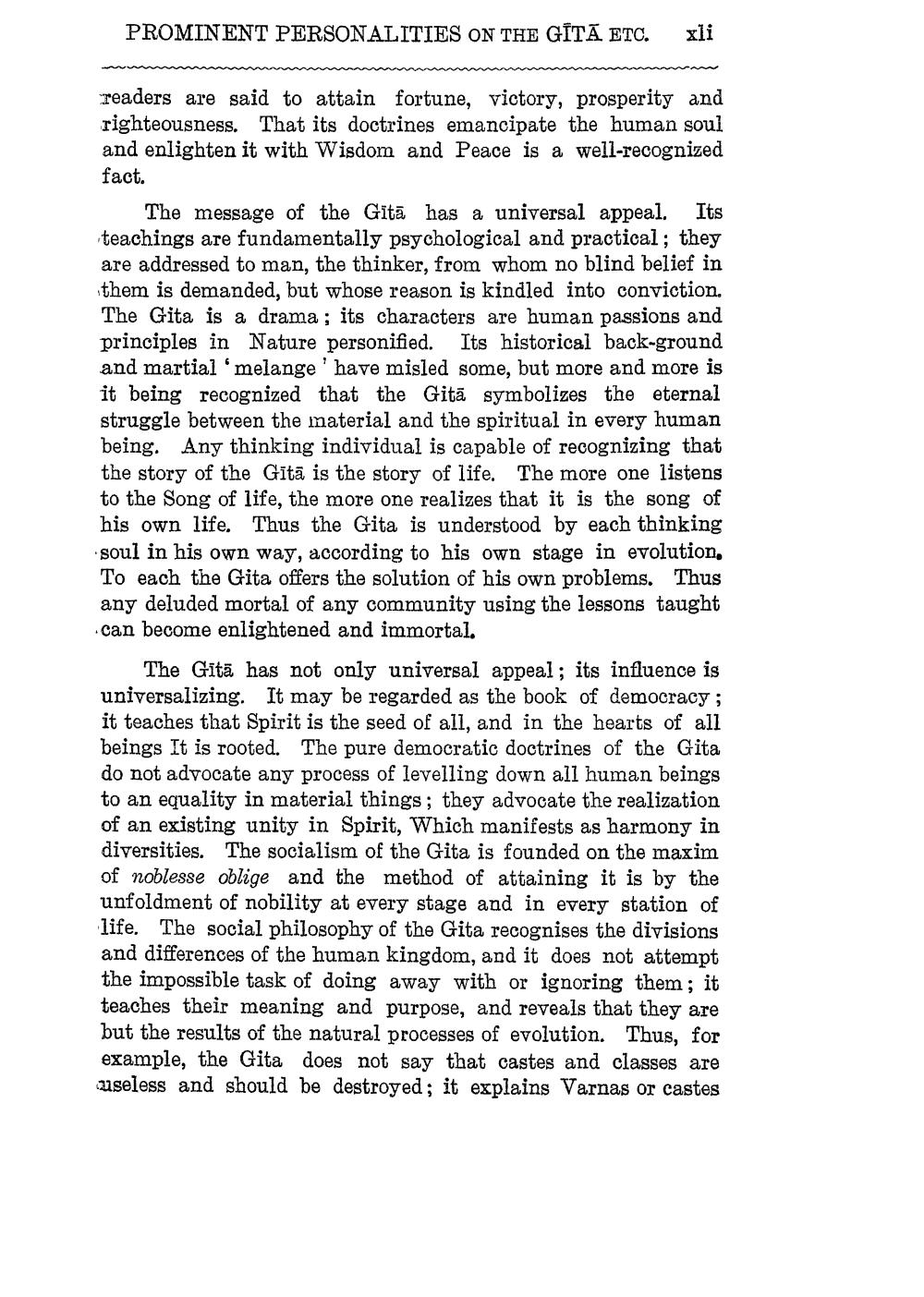________________
PROMINENT PERSONALITIES ON THE GĪTĀ ETC. xli
Teaders are said to attain fortune, victory, prosperity and righteousness. That its doctrines emancipate the human soul and enlighten it with Wisdom and Peace is a well-recognized fact.
The message of the Gītā has a universal appeal. Its teachings are fundamentally psychological and practical; they are addressed to man, the thinker, from whom no blind belief in them is demanded, but whose reason is kindled into conviction. The Gita is a drama ; its characters are human passions and principles in Nature personified. Its historical back-ground and martial' melange' have misled some, but more and more is it being recognized that the Gitā symbolizes the eternal struggle between the material and the spiritual in every human being. Any thinking individual is capable of recognizing that the story of the Gītā is the story of life. The more one listens to the Song of life, the more one realizes that it is the song of his own life. Thus the Gita is understood by each thinking soul in his own way, according to his own stage in evolution, To each the Gita offers the solution of his own problems. Thus any deluded mortal of any community using the lessons taught can become enlightened and immortal.
The Gītā has not only universal appeal; its influence is universalizing. It may be regarded as the book of democracy ; it teaches that Spirit is the seed of all, and in the hearts of all beings It is rooted. The pure democratic doctrines of the Gita do not advocate any process of levelling down all human beings to an equality in material things; they advocate the realization of an existing unity in Spirit, Which manifests as harmony in diversities. The socialism of the Gita is founded on the maxim of noblesse oblige and the method of attaining it is by the unfoldment of nobility at every stage and in every station of life. The social philosophy of the Gita recognises the divisions and differences of the human kingdom, and it does not attempt the impossible task of doing away with or ignoring them ; it teaches their meaning and purpose, and reveals that they are but the results of the natural processes of evolution. Thus, for example, the Gita does not say that castes and classes are useless and should be destroyed; it explains Varnas or castes




